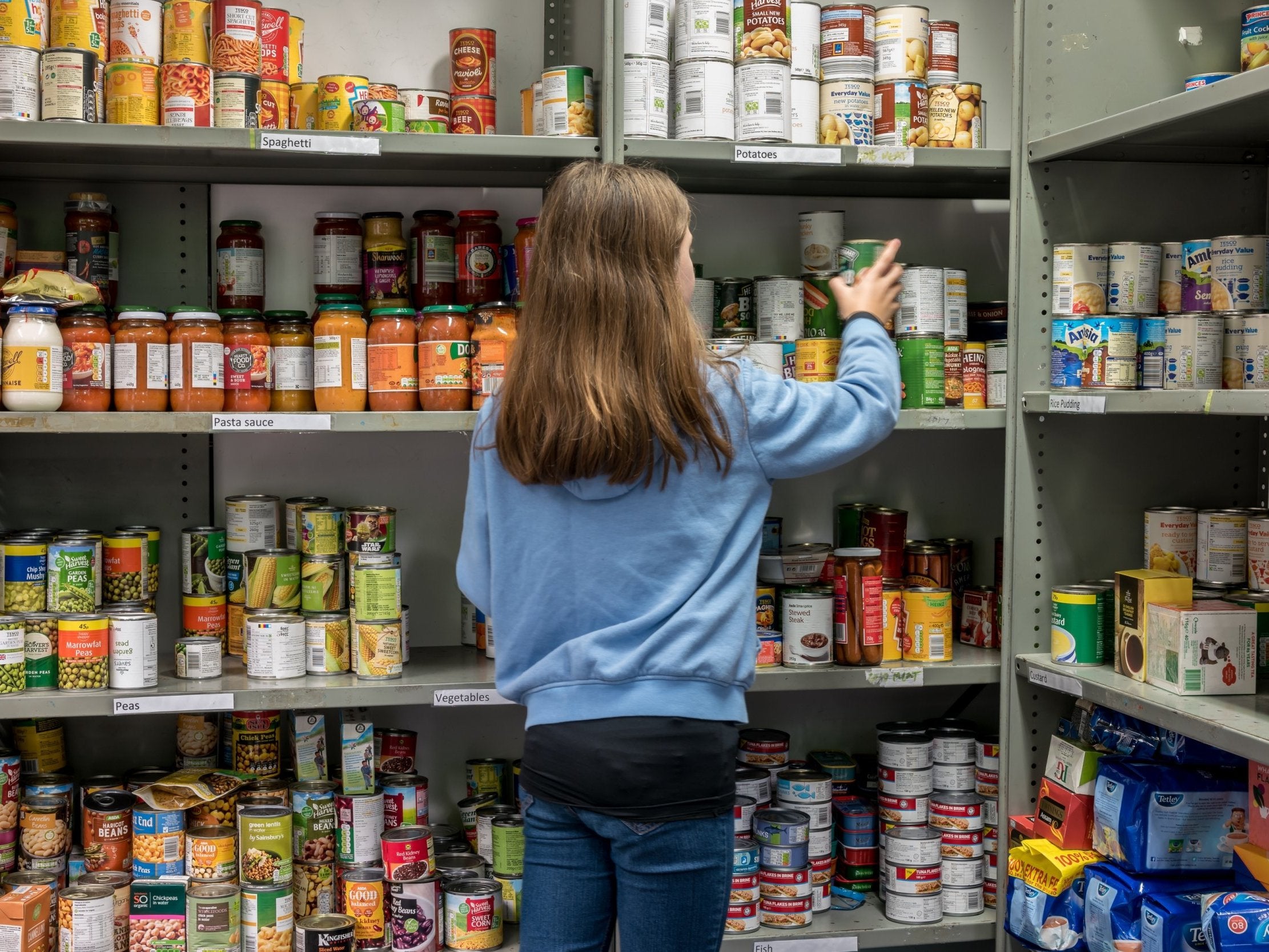Food banks bracing for record high demand over Christmas period
Campaigners call on next government to 'work towards a future where no one needs a food bank'

Your support helps us to tell the story
From reproductive rights to climate change to Big Tech, The Independent is on the ground when the story is developing. Whether it's investigating the financials of Elon Musk's pro-Trump PAC or producing our latest documentary, 'The A Word', which shines a light on the American women fighting for reproductive rights, we know how important it is to parse out the facts from the messaging.
At such a critical moment in US history, we need reporters on the ground. Your donation allows us to keep sending journalists to speak to both sides of the story.
The Independent is trusted by Americans across the entire political spectrum. And unlike many other quality news outlets, we choose not to lock Americans out of our reporting and analysis with paywalls. We believe quality journalism should be available to everyone, paid for by those who can afford it.
Your support makes all the difference.Food bank providers are bracing for record high demand this Christmas as election candidates from all parties face demands to make ending hunger across the UK a priority.
The Trussell Trust warned that newly published figures from December 2018, coupled with the increase in food parcels needed so far this year, suggest more people than ever will need a food bank’s help.
Figures published earlier this month showed that the period between April and September 2019 marked the busiest half-year for the charity’s network since it opened, with the number of parcels given out hitting 820,000 – a 23 per cent increase on the same period in 2018.
It meanwhile provided 186,185 three-day emergency food parcels to people last December, marking a 44 per cent rise on the monthly average for the 2018-19 financial year.
Separate research from the Truseell Trust revealed food bank users have on average just £7.10 a day to live on, which is “drastically lower” than the official relative poverty threshold.
The findings also suggested that people were being forced to appeal for food parcels for three main reasons: problems with the benefits system – notably universal credit – ill health and challenging life experiences, and a lack of local support.
The Trussell Trust’s chief executive Emma Revie warned that food banks “could not and should not have to continue to pick up the pieces” of food poverty across the UK.
“Christmas is supposed to be a time of joy and celebration – but for too many people it’s becoming harder and harder to keep their heads above water,” she added.
“Our next government must start working towards a future where no one needs a food bank. It’s not inevitable that every Christmas we hear stories about families needing food banks. It’s in our power to reach a future where everyone has enough money for the basics. This can change.”
She urged members of the public who wished to help their local communities to both find out what items your local food bank is most in need of and donate as soon as possible, and ask their local election candidates to pledge to protect people from hunger.
A spokesperson for the Department for Work and Pensions (DWP) said: “We spend over £95bn a year on working age benefits and universal credit supports more than 2.5 million people across the UK.
“With universal credit people can get paid urgently if they need it and 95 per cent of payments are made in full and on time.”
Join our commenting forum
Join thought-provoking conversations, follow other Independent readers and see their replies
Comments